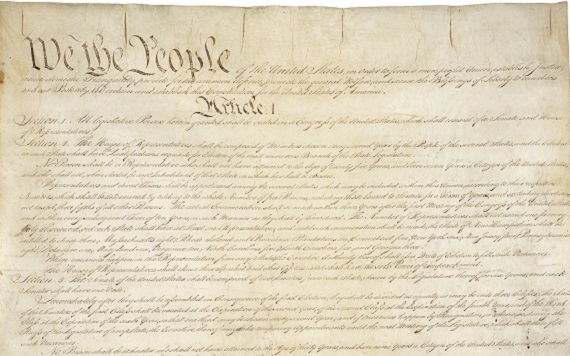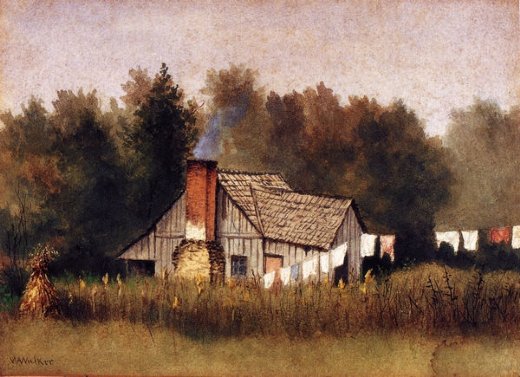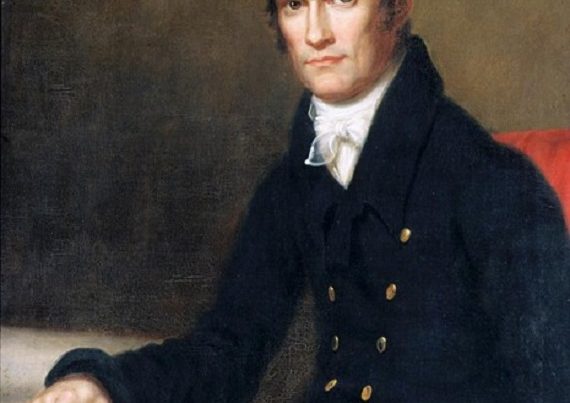For the second time in the last 16 years it seems that we have a new President who did not win the national popular vote, although there are those who contend that once all the votes are counted, Trump could very well come out on top. But whether that’s the case or not the discussions have begun, especially by Democrats, for in both of these instances since 2000, the winner was the Republican Party.
The debate sprouting up since Election Day, aside from the chaos and near-anarchy in the streets of our major cities, is a renewed national conversation over the Electoral College and the usual litany of calls to abolish it.
The detractors say our President should be elected by the popular vote, and the archaic, indirect system should be scrapped. And they’ve used every excuse in the book, everything from the Electoral College is “outdated” and “undemocratic” to the leftist’s tried-and-true smear of “racism,” meaning the Founders crafted the system to protect slavery.
Along with these irrational critics we do find a number of defenders, many of whom are learned scholars from across the country. In the last week I’ve read numerous articles and listened to a few interviews on television and radio but, sadly, I have been less than impressed by those who seek to defend our presidential election process.
Sure they all point to the fact that the Founders were great skeptics of democracy, believing it would lead to an out-of-control “mobocracy,” so they crafted a system to guard against that unpleasantness. Our structure is not a democracy, they correctly remind everyone, but a constitutional republic.
The contest this year, as much as any election before it, showcased for all to see just what a mass democratic process for choosing Presidents would entail – one candidate, in this case Hillary Clinton, needing to win just a handful of states, and within those states the major population centers, in order to carry the whole nation. The small states and the rural areas in a pure democratic process would get almost no attention and have virtually no say in the election.
These are surely valid reasons for defending the Electoral College against precisely the kind of folks who are flooding the streets in the deep blue metropolitan centers around the country, the very “mobocracy” our Founders feared. However, these scholars, as learned and distinguished as they all, failed to call attention to the main reason for the Electoral College – a political system based on the sovereignty of the people of the states.
Our constitutional republic is a federal system with sovereignty not in the hands of the whole American people but held by the people of the states. The sovereign people in our system exercise their sovereignty, or supreme power, through their states, and in the case of the presidential election, through the Electoral College.
So we do not have one presidential election in the United States; we have 51 elections (the 50 states plus Washington, DC, which should never have been given 3 electors because it lacks sovereignty). And those states, or sovereign entities, cast their ballots as electoral votes. That is the method the Founders came up to preserve the federal system. The Electoral College, then, is a conduit, or pathway, for the sovereign people of the states to exercise their sovereign will to choose the President of the United States.
During the Constitutional Convention there was a proposal to elect the President by a direct democratic popular vote but the delegates rejected it. Of course there were representatives from small states who did not want any such system because of the potential for the large states to dominate, but that was not the only reason. The “big state, small state” battle at the Convention had as much to do with state sovereignty and protecting equality in the Union as it had anything else.
In the debate over the 12th Amendment, United States Senator Uriah Tracy remarked on the Electoral College: “He [the president] is to be chosen by electors appointed as the State legislatures shall direct, not according to numbers entirely, but adding two electors in each State as representatives of State sovereignty. Thus, Delaware obtains three votes for president, whereas she could have but one in right of numbers.” In other words small states are equal to large ones because sovereignty is in the people of the states.
As Senator Tracy noted, the Constitution provides that these electors, or “representatives of State Sovereignty,” are to be chosen in the manner prescribed by the state legislatures, in Article 2, Section 1, Clause 3: “Each State shall appoint, in such Manner as the Legislature thereof may direct, a Number of Electors, equal to the whole Number of Senators and Representatives to which the State may be entitled in the Congress.”
Today the manner chosen is by popular vote but it has not always been that way. The state legislatures can pick the electors in any manner they choose and in our earliest elections there is generally no popular vote totals because not many people voted for President. In fact, in the first few elections, only two states allowed the people to vote for President and choose the electors. The rest were chosen directly by the state legislatures, as the direct “representatives of State sovereignty.”
But by the election of 1836, and the advent of “Jacksonian Democracy,” all states except South Carolina used popular votes to select the electors. South Carolina did not adopt that method until after the War.
The presidential election of 2000, however, demonstrated a great potential flaw in the system, one that the people should be aware of. With Florida in the midst of electoral chaos, the election of the leader of the free world would fall into the hands of unelected judges, with suits and counter-suits flying across the state and around the country only to land in the US Supreme Court.
Yet before the High Court stepped in to stop the re-count, Florida’s legislature was set to choose the electors themselves and probably would have if the Court had allowed the re-counting to continue, and that’s what should have happened regardless of any Supreme Court order. The Supreme Court had no business, or constitutional authority, to get involved in a presidential election when the Constitution is very clear about the method for selecting electors.
Any dispute in balloting should have sent the matter immediately to the legislature and in their capacity as the representatives of the sovereign people they alone could decide the electors. The 2000 election only solidified what Professor Clyde Wilson has pointed out, that sovereignty now, for all practical purposes, is in the hands of the Supreme Court.
As for the 2016 election, like Bush before him, Donald Trump, as far as we can tell, did not win the popular majority last Tuesday, but he did win the constitutional majority, and that’s what matters.
But despite the opinion of those in the streets, and the “scholars” on television, our indirect, Electoral College method does not fully reflect an anti-democratic attitude among the Founders but a direct method that allows the people of the sovereign states the power to choose the leader of the country. In 2016, sovereignty in the hands of the people of the states worked again.







